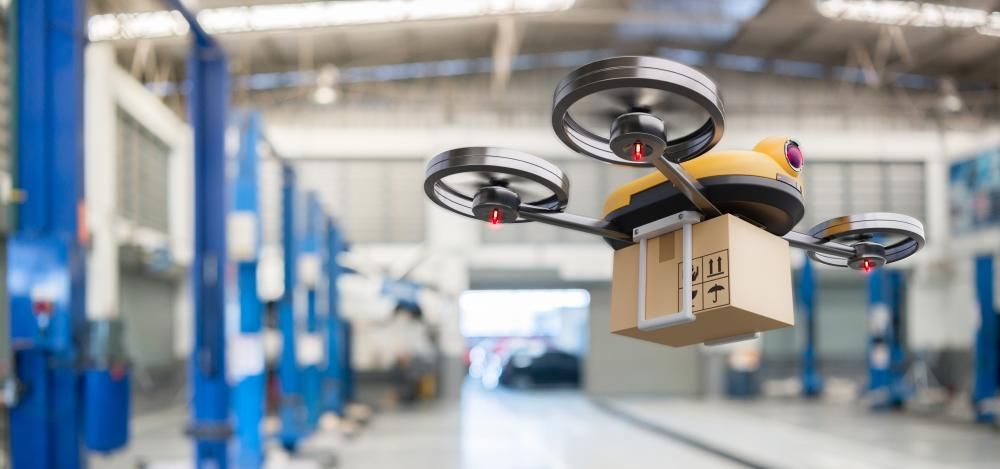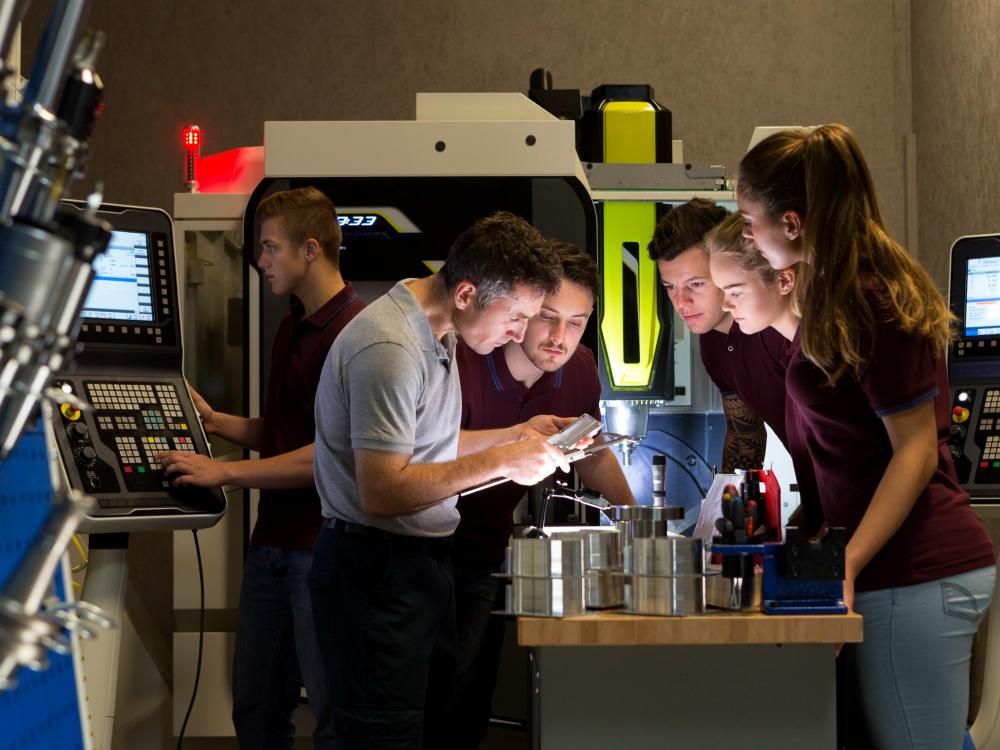
Industrial IoT services & solutions
- Home
- IoT
- Industrial IoT
- Services
Itransition offers comprehensive industrial IoT development services to help businesses embrace Industry 4.0. We conceptualize, develop, and implement a robust and secure system of IoT devices and software for real-time operational data analysis, improved asset condition monitoring, better inventory control, and optimized production.
About Itransition
5+ years in IoT development services
Delivering IT consulting and software development services since 1998
Strategic partnership with Microsoft and AWS
Featured among the top IT services providers in Zinnov Zones E R&D Services report
ISO 27001 and ISO 9001-certified, ensuring the quality and security of IIoT development services
Hands-on experience in delivering AI/ML-powered solutions
Our industrial IoT services
.jpg)
Industrial IoT consulting
We offer end-to-end professional consulting services on industrial IoT technology:
- Analysis of your internal processes and workflows to identify inefficiencies, optimization opportunities, and IIoT implementation use cases
- Industrial IoT solution conceptualization and design
- Assistance throughout the IIoT implementation process
- Audit of your existing industrial IoT systems for bottlenecks
- IIoT system improvements planning to ensure their stable and high performance as well as alignment with new business objectives.
IoT integration
We convert your industrial bare metal devices into smart IIoT solutions that monitor and collect critical industrial data. We can also integrate IoT into your automated conveyor systems for better control and optimization of your industrial processes.
Industrial IoT software development
Our team provides comprehensive industrial IoT software development services to add innovation and improve the efficiency of your industrial operations:
- Web and mobile IoT app development
- Customization of out-of-the-box IoT platforms
- Integration of IoT software with your existing IT ecosystem (ERP, MES, SCADA, CMMS, PLM, and BI tools)
Prototyping
We quickly deliver fully working and secure prototypes of IoT systems for smart factories to validate their feasibility, capture early user feedback, address possible issues well in advance, and enhance the quality of the final solution.
Digital twin development
We create IoT-enabled industrial digital twins that become a virtual representation of your manufacturing processes, workflows, or industrial sites, allowing you to simulate and test operational scenarios as well as facilitate real-time asset monitoring, predictive maintenance, and quality control.
IoT data analytics
We create cloud systems with AI/ML capabilities, enabling companies to efficiently store and analyze large sets of industrial IoT data, perform big data analysis, and make accurate predictions, driving smarter decision-making and increasing operational efficiency.
Looking for a trustworthy partner to implement your industrial IoT project?
Our customers say
We are more than happy with the outcomes of our collaboration with Itransition. We really appreciate their valuable input and give credit to a high level of professionalism and the overall commitment to the project they have demonstrated. We were able to rely on Itransition's expertise, granting them a high level of freedom in decision-making and being open to their ideas. By working in close correlation with us, they always strived to think through the most viable and innovative implementation option, while bearing in mind both the delivery terms and the financial aspects of the project. Therefore, we unreservedly recommend Itransition as a reliable and valuable technology partner, able to deliver complex and innovative solutions of any scale and within the shortest timeframe.
Brian Shoenfeld
Chief Executive Officer Nuvara
Embrace the capabilities of industrial IoT technology
Asset tracking
Predictive maintenance
Inventory management
Quality control
Energy consumption management
Supply chain control
Industries we work with
Accelerate your digital transformation with industrial IoT implementation
Industrial IoT implementation challenges we help resolve
When developing and implementing industrial IoT solutions, we anticipate and prevent potential risks and challenges, helping companies maximize the value of industrial IoT systems. Here are the most common roadblocks companies face and the countermeasures we take.
Challenge
Measures we take
Cybersecurity
Having no or lightweight operating systems, IIoT devices increase an organization's threat landscape and often become easy targets for cybercriminals.
Having no or lightweight operating systems, IIoT devices increase an organization's threat landscape and often become easy targets for cybercriminals.
We focus on delivering secure and high-quality code for your IIoT solution and perform security testing to identify and eliminate possible vulnerabilities. We also encrypt data at rest and in transit, introduce secure communication protocols, set up multi-factor authentication, and implement role-based access according to the principle of least privilege. If required, we conduct security training for your employees, as well as take on regular IIoT software security monitoring, testing, and troubleshooting.
Organizational changes
As implementing IoT applications facilitates automation, industrial companies have to change their everyday activities and workflows. Dealing with all the changes that IIoT implementation incurs requires additional expenses and effort.
As implementing IoT applications facilitates automation, industrial companies have to change their everyday activities and workflows. Dealing with all the changes that IIoT implementation incurs requires additional expenses and effort.
Our team helps you effectively navigate organizational changes incurred by industrial IoT solution implementation by developing and executing a comprehensive change management strategy. We create a change management team composed of our specialists and subject matter experts from your side who work closely with your employees throughout the IIoT implementation project, guiding employees in adapting to the new system. We also develop comprehensive employee training programs on IoT solution usage and set up clear communication channels for employees to voice concerns, ask questions, or suggest improvements related to the new IIoT-enabled workflows.
Why partner with Itransition for industrial IoT development
Individual approach
With internal technical and industry-specific Centers of Excellence and over 3,000 specialists on board, we assemble development teams with all the skills your project requires. We also offer various cooperation models, whether you need specialized experts, dedicated teams, or full project outsourcing.
Cooperation transparency
We establish clear communication channels, maintain up-to-date project documentation, grant you access to project tracking tools, and conduct regular meetings and sprint reviews so that you have complete visibility over the process and progress of your IoT software development project.
Code quality
We ensure the high quality of IoT software by creating high-quality, readable, concise, and easy-to-maintain code in accordance with specific programming language standards as well as your internal guidelines. We also perform regular code reviews and test the source code for functional, performance, and security issues.
Technology-agnostic
Leveraging our extensive experience in working with various IoT platforms and technologies, including Azure IoT Hub, AWS IoT, and Things Board, we help you implement custom and platform-based scalable IoT solutions of any complexity, using tools and technologies that best fit your case.
FAQs
What components does the IIoT architecture include?
The industrial Internet of Things architecture includes several layers, each responsible for specific tasks.
- The first layer comprises IoT sensors, actuators, wearables, beacons, and PLC devices that collect data across the industrial site. Here, companies can also employ edge devices capable of locally performing simple processing of collected data without transferring it to the cloud.
- The second layer manages the communication between the connected devices and the cloud or data centers. It includes communication protocols (like MQTT, CoAP, OPC UA, Ethernet, Wi-Fi, 5G, Bluetooth, and LPWAN) and network gateways (including edge gateways for edge computing) responsible for device connectivity and protocol conversion.
- The third layer comprises cloud or on-premises data repositories, as well as data management and analytics modules empowered with artificial intelligence and machine learning capabilities.
- The fourth layer of the industrial IoT architecture incorporates BI dashboards and various interactive applications for controlling and managing the entire IoT ecosystem as well as for delivering analytics insights.
What are the benefits of industrial IoT systems?
By adopting custom IoT solutions, industrial companies can gain a variety of benefits, including:
- 360-degree view of the production line activities and the entire supply chain
- Production process optimization and unplanned downtime decrease
- Increased level of industrial automation and production accuracy
- Minimized risks of human-related errors and enhanced product quality
- Reduced operational costs due to efficient equipment predictive maintenance and optimized power consumption
- Better workplace safety
- Improved factory sustainability due to more efficient production resources usage
You can learn more about IIoT benefits in our recent article, where we’ve gathered relevant statistics on the IIoT market state and showcased real-life examples of IIoT implementation across enterprises.
What are the costs and timeframes of IIoT development & implementation?

Insights
Industrial IoT security: top concerns & actionable strategies
How to achieve unfailing IIoT security? Explore the most common threats and develop a feasible strategy to effectively overcome them.

Insights
IoT in manufacturing: 8 use cases, technologies & examples
Discover how IoT can help manufacturers optimize supply chains, energy management, enhance inventory management, improve product performance, and boost revenue.

Case study
A POC application for a drone delivery startup
Read how we developed a POC Android mobile application that facilitates contactless drone delivery, helping the customer prove the product's feasibility.

Case study
IoT device management software
Learn how Itransition built a custom iOS app for managing air humidifiers at any location and getting accurate interior climate statistics.

Insights
Digital twin in manufacturing: a must-have in Industry 4.0
Explore how manufacturing companies implement digital twins to increase efficiency, encourage innovation, and drive more value.

Insights
IoT data analytics: benefits, use cases & main challenges
We explore the architecture and benefits of IoT data analytics and share a detailed implementation guide.